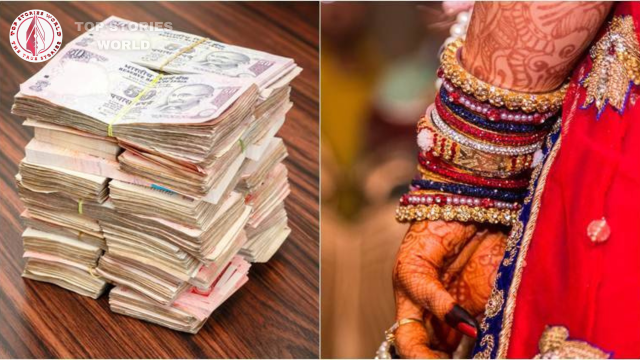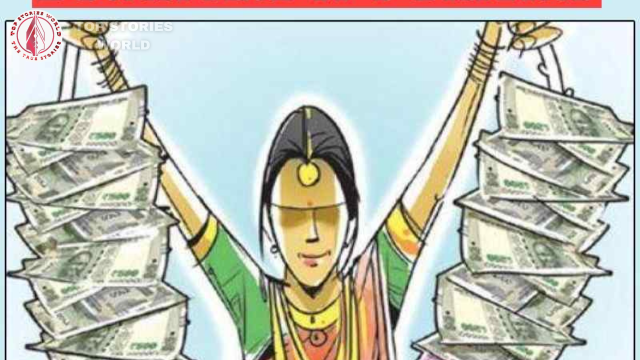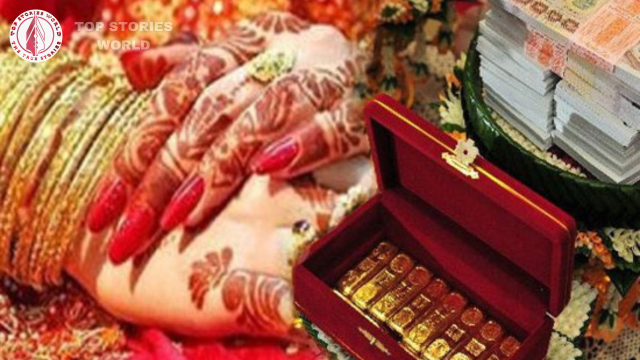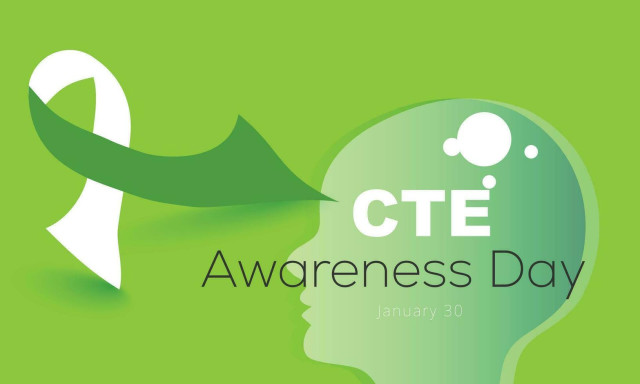Origin of Dowry: Not An Established Hindu Custom but An Oppressive Policy of The British Era
- Posted on April 5, 2023
- News
- By Arijit Dutta
- 469 Views

Origin of Dowry:-
Marriage is a sacred tie between not only a male and a female partner but Also between two families. Consequently, the institution of marriage is much more complex than just an exchange of views between two individuals. It involves elaborate customs and rituals which last for days.

The exchange of dowry is one such socio-cultural practice that goes hand-in-hand with marriage in many Indian communities. In 1961, the Dowry Prohibition Act was enforced to criminalize the giving or taking of dowry between both parties involved in the marriage.
However, the practice of dowry exchange is prevalent at a high magnitude beyond doubt, even today. The Indian National Crime Records Bureau has reported that between the years 2017 and 2021, 35,493 women died due to heartless and violent demands of dowry at the hands of their in-laws.
Old Vedic Practices of Gift and ‘Sulka’
A very eminent piece of authoritative legal writing popular among the Hindu culture is the Manusmriti. The Manusmriti or Manu’s code formed the basis of law in Hindu society, specifically, Family Law.
Manu’s code specifically differentiated between the gift amount of money to in-laws, which we now know as "dowry," and a bride’s wealth or "Stridhan." It laid down that dowry was a concept to be practiced at will by wealthy families of the Brahmanic caste.
Only if the woman’s family gave something out of their own will could the amount of dowry be exchanged. For all other classes of people, Stridhan was the prevalent form of wealth exchange.
On the contrary, it was the male partner’s family responsible to pay a  price (Sulka) to receive the daughter of another family as a bride.
price (Sulka) to receive the daughter of another family as a bride.
Instances of this practice are witnessed in the Hindu epics of Ramayana and Mahabharata. In the Ramayana, Sita’s father Janaka demanded a "Veer Sulka," which meant that he wanted only a brave warrior who could string the Pinaka bow of Lord Shiva to become the husband of his beloved daughter.
Similarly, in the Mahabharata, King Drupad, the father of Draupadi, wanted a warrior with unearthly skills in archery (Veer Sulka, which Arjun paid) to become the husband of his daughter and consequently, set up the unique setup of the reflection of a fish’s eye.
Concept of Stridhan:
When a woman was given wealth in cash or kind by her native family at the time of marriage so that the woman could lead an independent personal lifestyle apart from the lifestyle of her in-laws, it was called "Stridhan."
Stridhan mostly included the bride’s jewelry, outfits to be worn on auspicious occasions, or even money. The bride had undisputed ownership over her Stridhan property, and it could not be usurped from her under any circumstances by her in-laws or considered as dowry for the entire family of in-laws.
Institutionalization of Dowry During The British Rule:
Dowry was institutionalized and recognized by the legal system as a mandatory practice only during the British era. In 1793, Lord Cornwallis introduced the privatization of land in India, and women were considered as individuals not capable of owning any property.
With this, women were no longer allowed to own any wealth, even their own Stridhan, and the ownership of such wealth was passed on to the husband.
It saw the beginning of oppressive practices related to dowry. Since the ownership of the wealth exchanged was vested in the in-laws’ family, the giving of dowry by the female partner’s family became a prerequisite for conducting the marriage ceremony and establishing a relationship.
The Dowry Prohibition Act, 1961:
Women have been given the right to own property as a matter of right after the colonial era. However, problematic remains of colonial times in the form of social practices such as dowry are still persistent.
To mitigate this, the Dowry Prohibition Act of 1961 was introduced by the then government. However, the implementation of the particular legislation was extremely poor. No checks and balances to carry out the rules laid down by the Act have been framed. Hence, the goals of the Act remain only in pen and paper but not in practice.
The Way Forward:
It is a remarkable realization that the practice of dowry, the way it stands today, was not a custom cherished and preserved by old Hindu practices. Our roots do not support Such immoral practices, and hence, internal awakening and awareness against the menace posed by such a practice institutionalized by the Britishers in India is necessary.

For more updates keep visiting our website www.topstoriesworld.com where we provide unbiased, true and top stories of the world.




